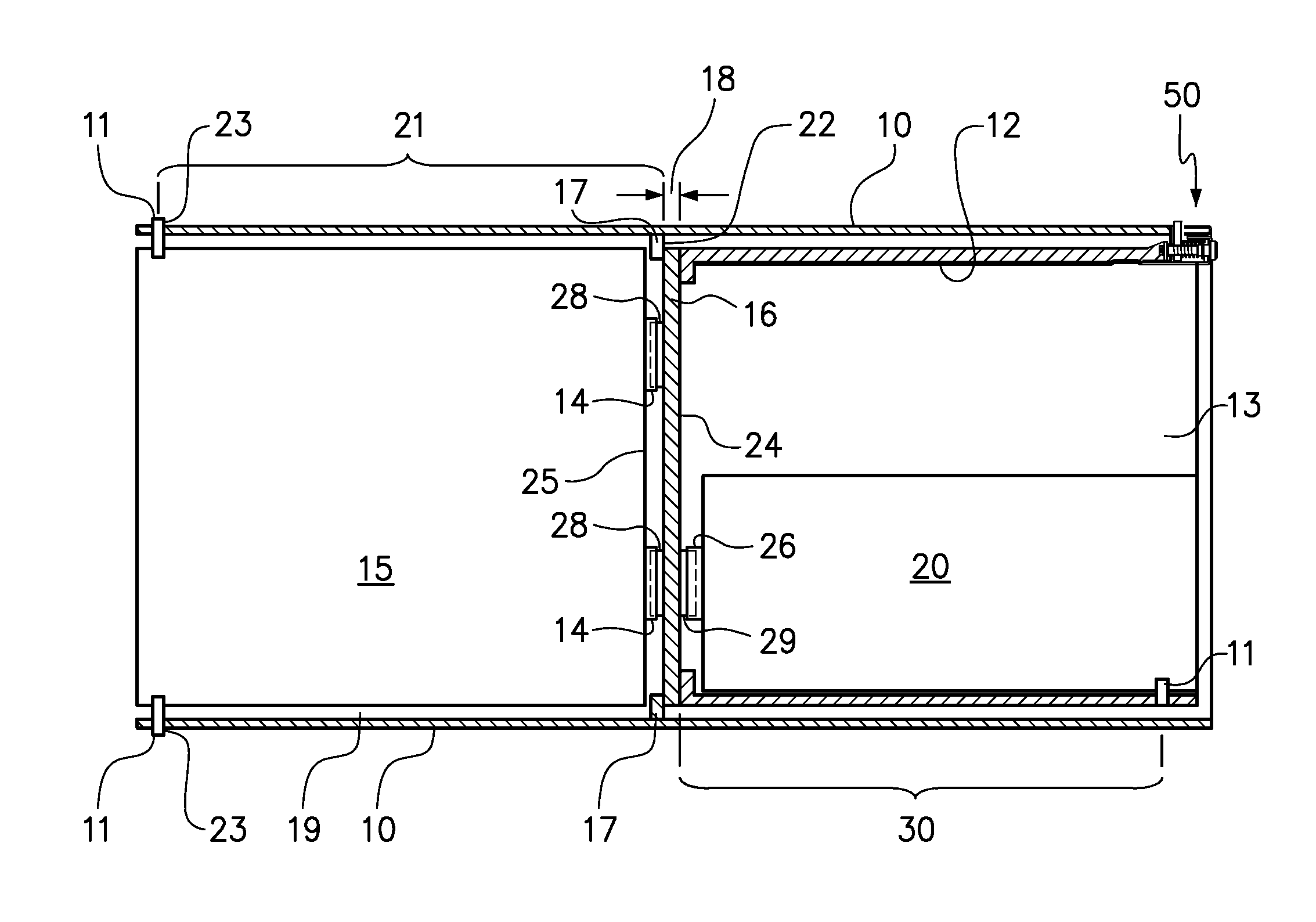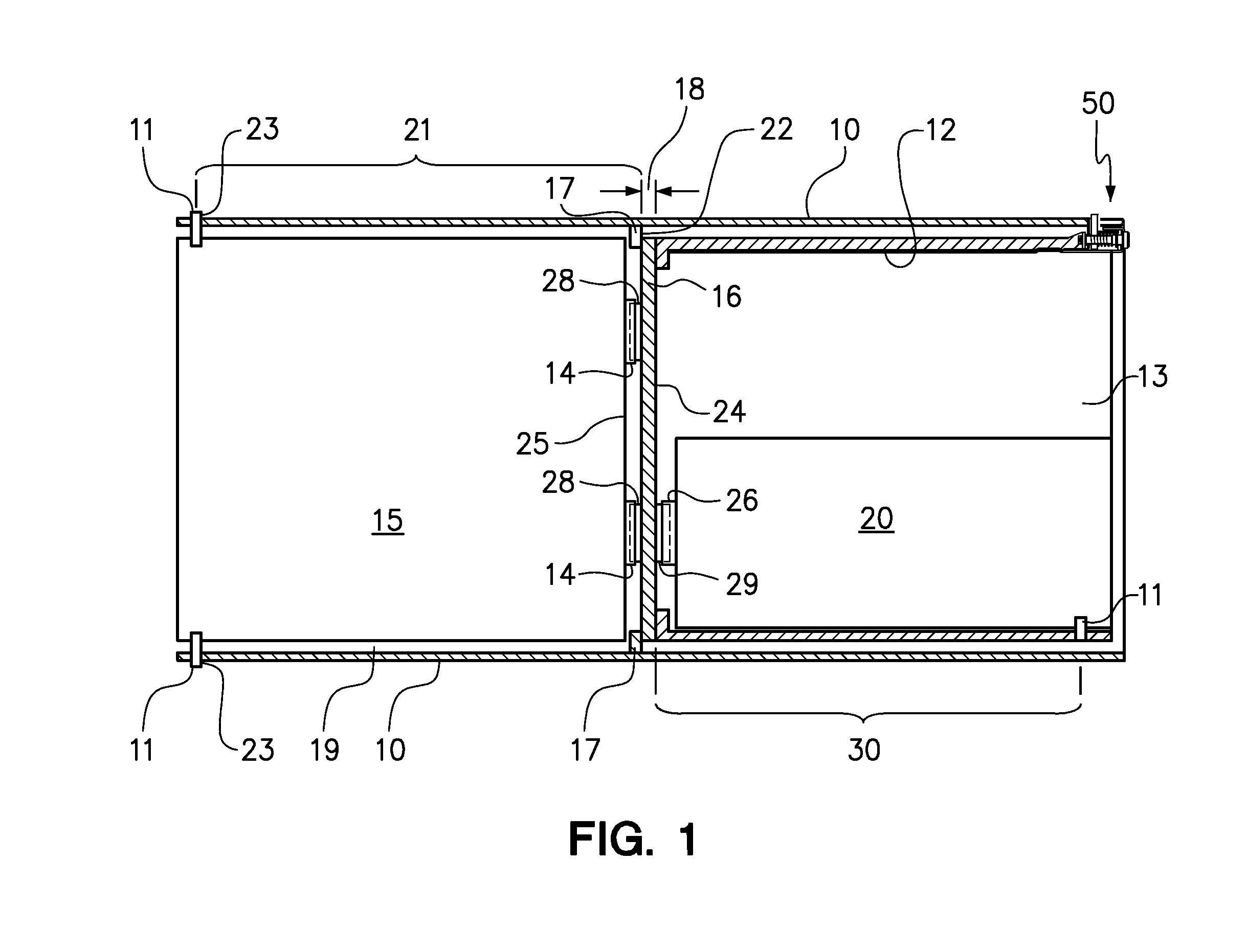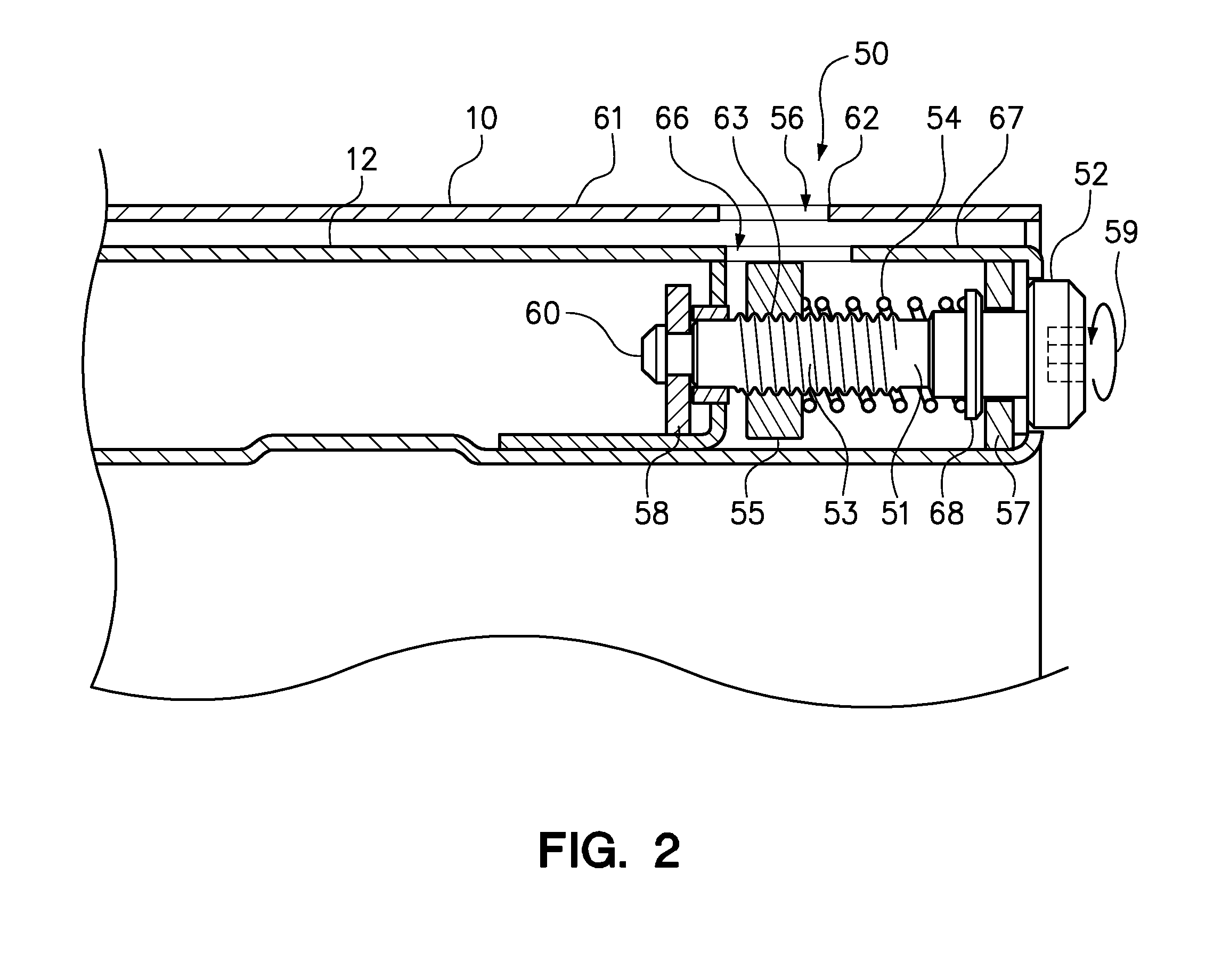Securing electronic devices within a sub-chassis for connection to a chassis midplane
a technology of electronic devices and chassis, applied in the direction of metal working apparatus, support structure mounting, manufacturing tools, etc., can solve the problems of electronic noise becoming more of a concern, low-speed and low-voltage signals are more susceptible to electronic noise disruption than low-speed and high-voltage signals, and electronic noise relates to conductive stubs
- Summary
- Abstract
- Description
- Claims
- Application Information
AI Technical Summary
Problems solved by technology
Method used
Image
Examples
Embodiment Construction
[0019]One embodiment of the present invention provides an apparatus comprising a chassis and a sub-chassis. The chassis has a first end, a second end, a bracket between the first and second ends, a first slot adjacent the first end, and a second slot adjacent the second end. The bracket is positioned for securing a first surface of a midplane at a known distance from the first slot, wherein a first electronic device is selectively securable within the first end of the chassis with a first device connector coupled to the first surface of the midplane and a first device latch secured to the first slot. The sub-chassis is receivable within the second end of the chassis, wherein the sub-chassis has a proximal end that engages a second surface of the midplane, a distal end having a sub-chassis latch that selectively engages the second slot to secure the sub-chassis in the second end of the chassis with the proximal end engaged against the second surface, and a sub-chassis slot adjacent t...
PUM
| Property | Measurement | Unit |
|---|---|---|
| reactive force | aaaaa | aaaaa |
| conductive | aaaaa | aaaaa |
| frequency | aaaaa | aaaaa |
Abstract
Description
Claims
Application Information
 Login to view more
Login to view more - R&D Engineer
- R&D Manager
- IP Professional
- Industry Leading Data Capabilities
- Powerful AI technology
- Patent DNA Extraction
Browse by: Latest US Patents, China's latest patents, Technical Efficacy Thesaurus, Application Domain, Technology Topic.
© 2024 PatSnap. All rights reserved.Legal|Privacy policy|Modern Slavery Act Transparency Statement|Sitemap



